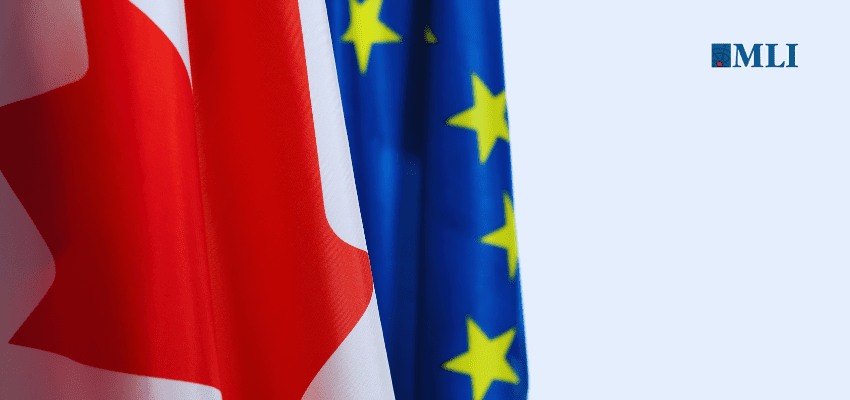This article originally appeared in New Direction.
By Alexander Dalziel & Heather Exner-Pirot, April 16, 2025
Following months of diplomatic pressure from US President Trump, Canada-U.S. trade has been deeply damaged. It is now an open question whether that relationship starts to normalize any time soon. However, for stable, predictable trade, Canadians are looking to other markets to grow our energy and resource exports.
Europe should be at the top of our list. Most European countries are our allies through NATO; an alliance whose importance has never been more apparent to Canada. We have a vested interest in Europe being a strong democratic power that can counter growing threats from authoritarian corners of the world. One of the best ways Canada can help is by being a reliable, affordable source of energy and minerals to shore up its manufacturing and defence industrial capacity.
Why hasn’t this already happened?
EU energy politics are complicated. For the past decade, the Union has privileged a net-zero future. This has led to serious strategic errors, from Germany’s closure of nuclear reactors, to an overreliance on intermittent renewables, to a voluntary dependence on cheap Russian oil and gas.
This backfired spectacularly after Russia’s illegal invasion of Ukraine of 2022. Weening itself off Russia natural gas has been a challenge. While pipeline supplies from Russia have dropped precipitously, they still comprised 18 percent of European imports in 2024. And Russia enjoyed a bumper ship-born export to Europe of liquified natural gas (LNG) last year, sending a new annual high of 16.65 million tons of it, which meant it accounted for 20% of total EU LNG imports.
To fill the Russian pipeline supply gap, the United States dramatically bolstered LNG delivery to the continent, supplying about half of its LNG imports. The mercurial Trump Administration is exposing the vulnerability of that, too: as former German Vice-chancellor Minister Robert Habeck stated in January, the reliance on U.S. energy means “a form of blackmail that we had in Russia is being repeated”.
Revolutionary change is underway in how Germany and the EU view the world. Long-fiscally stringent, Berlin has finally decided to open the fiscal taps for extensive defence and infrastructure reinvestment with a €500 billion special fund.
The EU is also making serious moves. It just announced €800 billion for a ‘ReArm Europe Fund’. Its Critical Mineral Raw Materials Act is aimed to reduce dependence on single foreign sources of these ingredients in defence, energy and digital hardware. The European Infrastructure Bank has put teeth behind this by making new funding available for financing for defence and critical raw materials investments, for which Canada is eligible.
Now Canada must respond in kind. Europe needs our energy – our natural gas, oil and uranium – to displace less friendly sources of supply, something that will become even more urgent now that Norwegian oil and gas production is set to decline and Kazakh and Niger uranium supplies to the West are being squeezed. Canada can also provide nickel, aluminum, cobalt, graphite and much more to propel the European defense industrial base.
Reasonable people can disagree on the business case for Canadian east coast LNG exports; but geopolitical risk is now a factor in the viability of these projects. Canada can minimize that risk. The foreign policy case is strong, and we should make exporting our resources to Europe easier, not harder.
To that end, Canada should propose an energy and resource pact to shore up supply-chain certainty across the Atlantic. That would start with looking at how Canada, could invest in infrastructure for east coast LNG and ink a long-term purchasing arrangement with Germany and the EU to spread risk and promote a predictable, politics-free supply.
The next part would be devising a plan and investment strategy for Canadian uranium and nuclear energy technologies to strengthen EU energy security. Perhaps even Berlin could be persuaded that the backstop to its intermittent renewables is new reactors, fueled in cooperation with Canada.
Finally, Canada and the EU should look at comprehensive cooperation not only on financing mineral exploration and mines but on building strategic reserves of critical minerals needed for the defence and other strategic sectors, and breaking bottlenecks in processing them.
The next prime minister, then, should book flights abroad to Berlin and Brussels early on and dedicate energy to these critical relationships. Europeans should likewise insist that Canada and Europe can partner, pragmatically and smartly, to face up to mounting geopolitical challenges, built around a comprehensive energy and resource deal.






